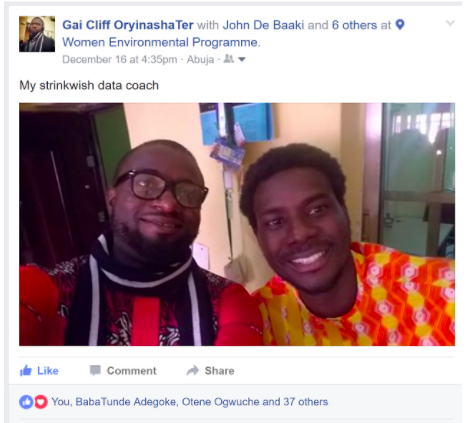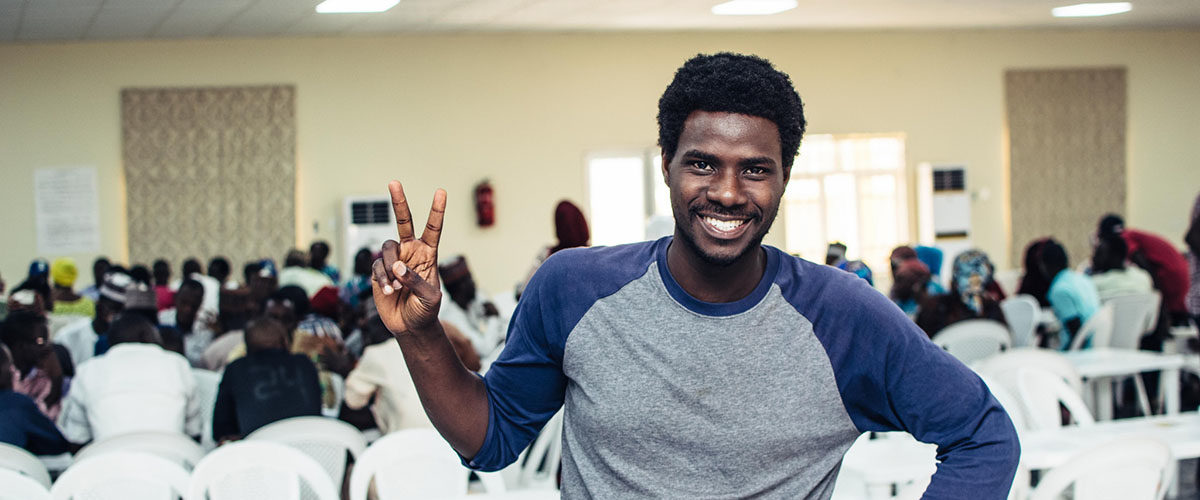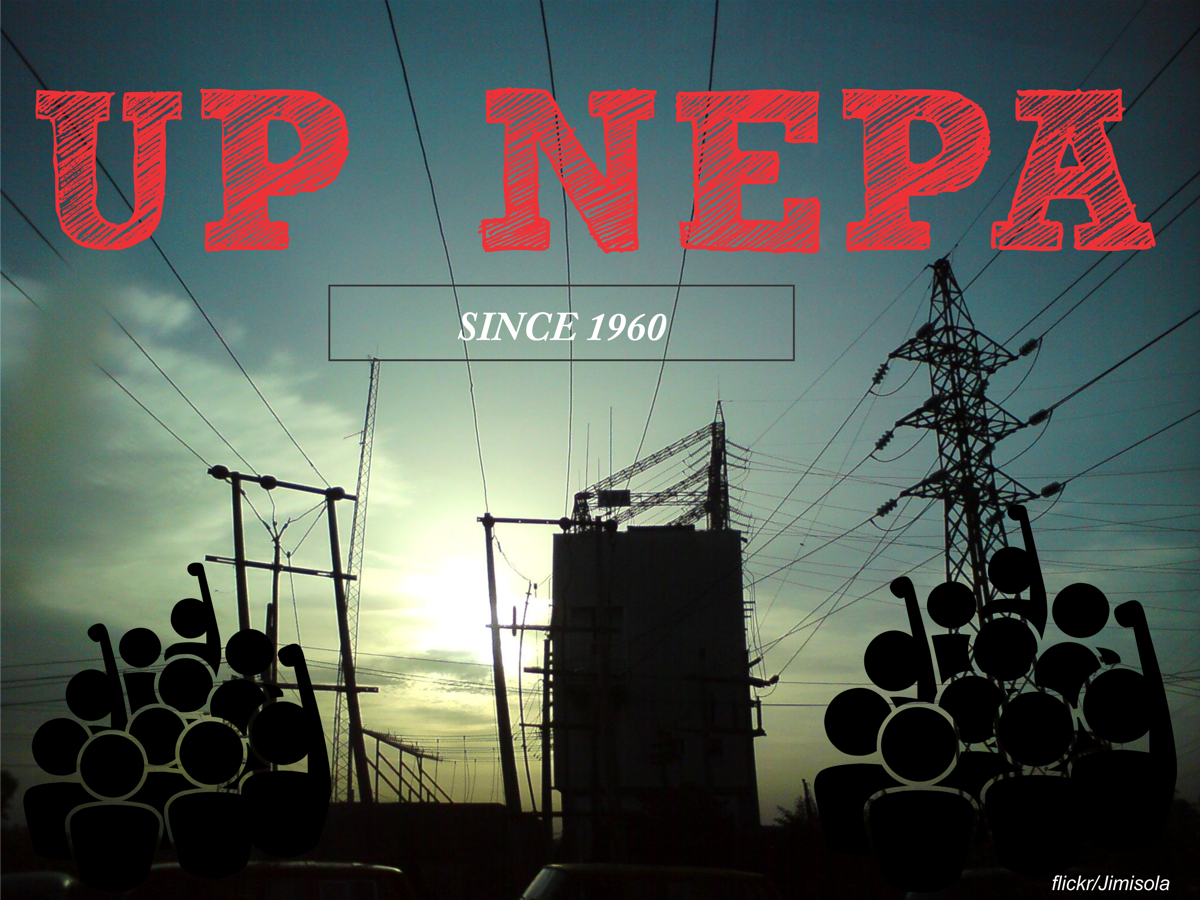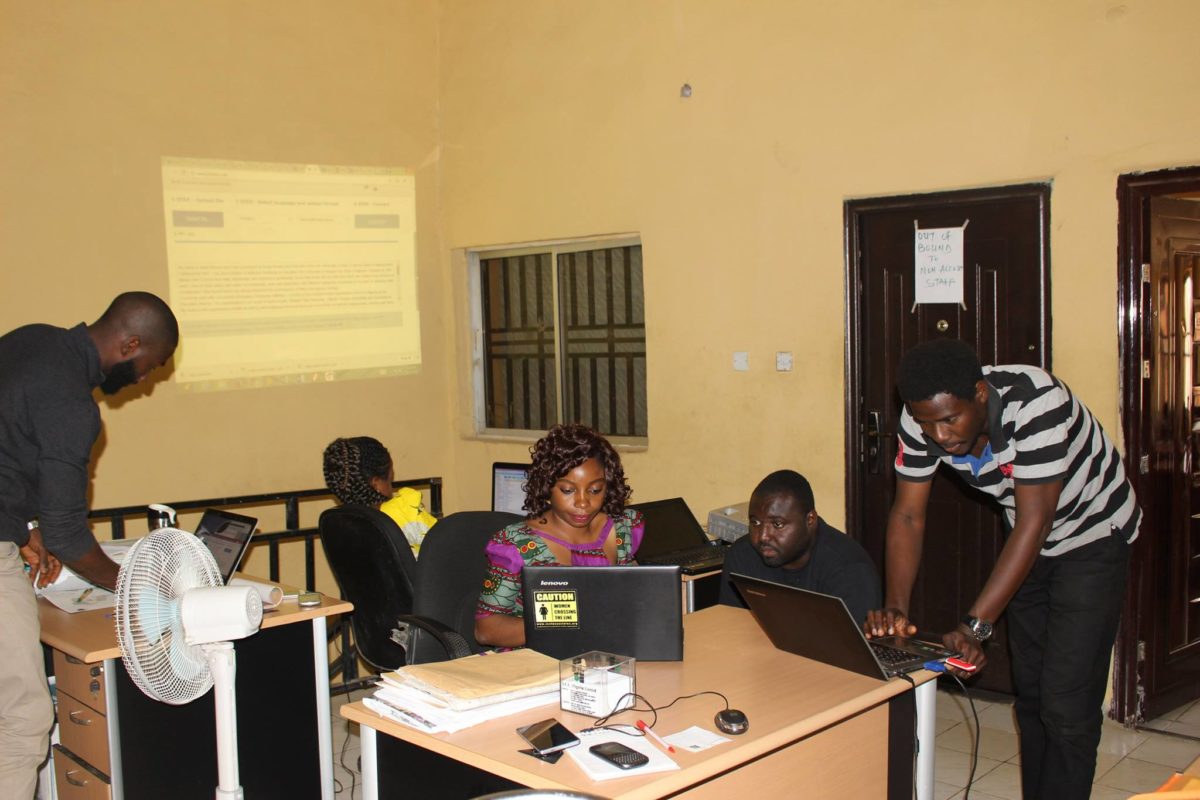The 17 countries in West Africa has a population of 374, 691, 249, and the median age of citizen in these countries remain at 18. But what’s the age of their leaders? As at October 9, 2017, the average age of the leaders of all West African countries stands at 65. That’s 17 years older than the moribund Transrapid 449km/hour train used in Germany between 1969 and 2008! Alpha Conde of Guinea, a country with a population of 12 million, remains the oldest West African president. Faura Gnasibe of Togo, at 51, is the youngest president in West Africa.
Category: Uncategorized
3 Lessons Nigeria Can Learn from Turkey to Meet Its Energy Needs!
South Africa has three times, the total electricity generation capacity of all the 18 countries in West Africa! Currently, the electricity sector in the West Africa States provides power supply to only about 30% of the population. The region’s maximum load is just above 10,000 MW as against a total energy demand of approximately 50,000 GWh, out of which over 85% is accounted for in the three primary electricity exporting countries (Nigeria, Ghana and Cote d’Ivoire), with nearly 57 % for Nigeria alone. Are solutions far-fetched?
1. Political will is essential. It will take fifteen years to get power to every household in the country. Nigeria, which has 60% of the total population of West Africa will need 200,000 MW for its growing population. With lessons from Turkey, it took them 14 years to add 42,000MW to their electricity generation capacity, to make it to the present 70,000MW. Consequently, reforms such as recasting of the earlier players involved in the privatisation deals. The Ministry of Power itself would need to invest in long years of capacity building and sophisticated information technology systems that will avail it proper monitoring and implementation mechanisms. The Ministry might also want to do away with the numbers of regulatory agencies involved in the market presently. In doing this, the government would have built credibility for private investors.
It will take fifteen years to get power to every household in the country if reforms is focused on capacity to implement.
2. Open The Market. The present framework which states that investors should return a certain percentage to the grid might be a turn in the neck for business. Gas and Coal will be dominant technologies by 2040. So, why not allow investors to propose the energy mix they will be involved in, while the Ministry of Environment intervene in making sure proper Environmental Impact Assessment is done. The present grid system needs to be overhaul as there are several deficiencies in the system and infrastructures that power it. For instance, estate associations can decide to contribute and develop their energy system, while the government focuses on generating revenue in the form of tax from such arrangement. Community associations can as well agree on affordable electricity generating systems that government can advise on.
3. The Demand Side Myth. Private investors will only survive in cities like Lagos, Abuja, Portharcourt, Abia and Kano. This is where you have the semi-urban centres of Nigeria, and also where industries are, as such, they have people that can actually pay for power. What happens to the remaining 120 million? 80% of them live under the poverty line, and might not be able to afford to pay power bills. From lessons from the present privatization, it will be advisable for the government to focus on such communities, while it leaves private sectors to operate in the semi-urban centres. Also, citizens should know that they must protect the present infrastructures from vandals. They were all constructed using our money collected as tax, bills and rates.
No doubt. There is a direct correlation between economic growth and electricity supply. If Nigeria is to fulfil its promise of the present Economic Recovery and Growth Plan, and West Africa is to deliver on its Economic Community of West African States Power Pool, it needs power—and lots of it. What do you think?
“Strinkwishism” – The Act of Embedding Fellows in Organizations to Build Organizational Capacities around Open Data
[This blog was originally posted on the Open Knowledge International Blog]
Recognizing that capacity building is central to economic growth, reductions in poverty and equal opportunities, Open Knowledge International with the support of the Open Data for Development (OD4D) Network is expanding its work with civil society organisations (CSOs) through the Embedded Fellowship Programme.
In the last three months, I worked as an embedded fellow, consulting with Women Environmental Programme (WEP), by sharing data skills, and working on a data project with the team in their Nigeria office. The timing seems right. Not only is the information revolution upon us but trends towards democratization, government decentralization and economic liberalization have profoundly reshaped how universities, NGOs and other public-interest organizations do their work, thus, presenting them with new challenges and opportunities.
Getting to Know the Team
But how has it been like, working with Women Environment Programme in the last few months? WEP works basically on women’s empowerment across the world, and as their name implies, most of their work is focused on advocacy for women. I spent 2 hours highlighting what the needs were for a data project, and for sustainability reasons, I developed a questionnaire to ascertain the level of knowledge and skills of the team I will be working within days to come.
In human capacity building, we refer to this as a bottom-up approach. Ninety percent of the staff mentioned that they wanted to learn more about PDF extraction. Simple right? That’s what you get from questionnaires, but in the real world, while I was conducting training, they found out that they needed more, and you know what more means in the short time-frame of 6 weeks? Information overload! Here’s a brief look at the topics we covered and the feedback we received.
Exposing the Wealth of Open Tools
While highlighting data projects we could work on, such as creating advocacy products from citizen surveys, I was focused on getting some of the team members to be able to use some of the tools I introduced them to – Timeline.js for creating project or campaign timelines; Infogr.am for creating visualizations; Google Fusion Tables for publishing; licensing data using Creative Commons; Google Form for Surveys, using the Kobo Toolbox; analyzing and visualizing qualitative data using Wordle and a bunch of tools that can save them time in achieving their various tasks.
What did I get from working with them on using some of these tools? “Strinkwish” as some of the staff will say, as we engaged in hands-on training on each tool. During one of the sessions, I had to ask, and they told me it’s an organizational coined word, meaning extraordinaire! Hope you also have an organizational dictionary.

Evaluating the effects of capacity development, such as this, is not straightforward and the short- and longer-term perspectives need to be considered.In the short term though, staff mentioned how this has been helpful in their work:
“I am so excited that I could quickly use Tabula to extract pdf files, and also create a visualization for qualitative analysis”, Evelyn Ugbe, a Programmes Officer at WEP said as she was working on her new report on women advocacy.
With hands-on training like this, one cannot really measure the level of impact until you ask what participants have learnt, and I was amazed by the response of the staff after having 3 sessions with them. Another comment from staff member Emmanuel sheds light on the organisational-level improvements:
“It’s such a right time to have you. I am head of human resources and using Google Drive, coupled with the Google Fusion Tables had made my task easier, especially that I have been able to create a collaborative way, of getting feedback from staff”.
So in the short term, increases in knowledge and skills can be measured and in the longer term, one can measure whether people are doing things differently as a result of the capacity building by applying the skills they learned. I will be looking out for this, in the coming months.

Building Infrastructural Capacity Building is Paramount
With my experience of training and coaching staff and individuals, I have come to realize that skills and knowledge of trainees might not be enough, especially when it is within an organization: the system development capacity and organizational development capacity (described above) are more important and often unrecognised. As such, I was not surprised at times when some hands-on sessions became frustrating for the team because of the unreliable and slow internet. At one point I needed to bring my internet router, so I could get my rhythm on. Also, when one of the staff members, Elizabeth, tells me her computer just keeps going off because her laptop battery isn’t working and power isn’t stable, I was drawn to how critical infrastructural efficiency lies at the foundation of successful open data capacity building.
I was also able to identify that WEP needs a simple and slick website together with an email hosting service that allows staff to easily exchange information for its kind of work. Gai Cliff, a Senior Monitoring and Evaluation Officer at WEP asked in one of the sessions about one of the those I had introduced to them, “So how do we get the paid version, we are limited to some added functionality. Do you always get this when you do hands-on training using open-source tools?”. I had this several times! I like the fact that we had some talks about this challenges, and how going forward this can be sorted so we can easily publish some of the advocacy works I will be producing from the data projects.
What’s Next?
“Olu, we will love to continue this in the coming year so you can produce our advocacy materials. These sessions have been helpful for my team, and also that you can play an advisory role on the organizational capacity development”, Priscilla Achakpa, the Chief Executive Officer at WEP mentioned. “Absolutely” I replied while thinking of my calendar for the first quarter of the coming year, and also visualizing the support each of the staff had requested for, which I think could do well to accomplish the long term goals of this fellowship, and as such, ensuring the 1,110 minutes committed to this first phase, can become sustainable!
How Data Journalism Might Halt Feeding Peanuts to Journalists
On the week of 8 – 12th and 15 – 19th February 2016 in Abuja, I facilitated training on tracking government spending with 16 producers of popular current affairs programmes and 16 news editors from the broadcast media in a BBC Media Action supported capacity building for journalists. Nothing can be more exciting than igniting journalists’ passion to innovate their newsrooms and also participating in this training were facilitators from BudgIT (One of the leading organizations using technology to hold government accountable) and Premium Times (An online media organization disrupting the media terrain in Nigeria).
No doubt, journalism is one of the professions that have young and vibrant women, and as confirmed, the participants had a balance of gender, unlike other trainings have facilitated, that gender is always skewed towards the male. 60% of the participants had contact with the computer in the middle of the last decade, at the advent of Facebook, and just at the exit of excite.com and inbox.com. Certainly, our participants should be conversant with the new technologies this time. Were they? I will say yes. At least they are familiar with their newsroom consoles, Twitter and Facebook.
Cross section of participants at one of the training batch
Besides their console, they were exposed to data journalism tools that can be leveraged in scraping government budget data, from converting PDFs to Excel using www.online2pdf.com ,Tabula and WebScraper. However, one thing that remains clear is that we often see the budget data but do not know when the money on the budget will be spent. So, what does a journalist do in such case? I asked, and most knew they were always the first to know, as a press release is always issued to media houses when these funds are approved or released. So journalists can scrape the press release and find useful information for tracking government expenditure, thus making a story out of it. Another useful tool is Google Alerts, which sends instant emails with keywords subscribed to by journalists.
We all agreed that there is always a time difference between approval and release of funds. As such, the time lag keeps the journalist inquiring, and keeping the story alive. So many at the training asked, what funds do we have to keep such stories alive, in a program or in the news? In the last six months, I have trained 62 journalists from the print media and broadcast, the same question keep reoccurring, and this time, I was almost told to change the training topic to how to write funding proposals for data journalism. Perhaps, this can stop the popular “Kwa” mentalism!
Oludotun Babayemi, a School of Data Fellow takes journalist through overcoming challenges in the industry
As more traditional broadcasters are now moving into data journalism, many are still incapacitated due to media ownership, availability of knowledge resources, skill gaps and a peer review center where knowledge can be exchanged on the go. Each of these training always draw us up to the solution, perhaps, as Connected Development [CODE] is working on its citizen lab for activists and journalists, it will be better placed to tackle some of this challenges.
As someone with a background in Information Management, I always appreciate the media and those who stand by the consoles to inform Africa, and through this, we believe the console can turn around, educate, inform and impact our society. With more data being churned out every day, and more funding in the direction of data journalism, I look forward to taking another set of interactions on data journalism with 24 news editors from Abuja, Lagos, Enugu, Adamawa, Kaduna and Plateau, in April, let’s keep the consoles jingling!
[MY POST ON THE SCHOOL OF DATA BLOG] CATCH US IF YOU CAN: THE #OpenData PARTY MOVES TO CALABAR!
So what’s the fuss about this #Opendata party in the South South of Nigeria – It will be held in one of the cleanest city in Africa – Calabar, and will be hosted in a state that has the most comforting tourist attraction in West Africa – the Obudu Mountain Resort! If you think there is another like it in the region, please comment below 😉 and one other thing about Calabar is the attributes to their women, and just for clarification – Calabar remains the capital city of Cross River State.
Right on time at the popular Mirage Hotel on October 15, 2014 was the Open data party that had 15 participants from different NGOs, citizens and this time we had some government officials – thus making it interesting. Whenever you have these three groups locked on a round table – questions like: why didn’t you make the data available, why didn’t you reply our FOIA, didn’t we make funding available for you to monitor, what happened to all the international aid you get, all come up, and as a facilitator – you are lost!
With my experience teaching data with NGOs, journalists and citizens, it is still clear that few of the practitioners know where even the little data available is hidden online. “It is appalling that we all here don’t know where the federal government budget is being published” affirmed Onoche Mokwunye. I get this answer often in all my sessions, which makes us conclude at times that the simple skill of finding data (secondary) itself and what their interest was in data, remains important.
In trying to figure out what kind of data they were interested in 40% of the participants were interested in budget data of the country; 30% were interested in contract data (in essence, the issue of money, and how it’s been used is important), while the remaining 30% was shared amongst election data, environmental data, infrastructure data, and transport data (which seems not to be available). Going forward did they really know where to find this data? KNOW! Well, it will be important to state that the Nigerian government has recently focused on some open data initiatives, even though it is not as if these portals make data available in machine readable format.
One may think, since we wouldn’t know where to find, or how to get the data, analyzing data might be a great challenge, of course NO! This group had great knowledge of diving into excel spreadsheets – maybe I knew only one way of handling some task before, now I learnt two more ways – that was the most interesting part of this data party! So what else, how do we present this datasets using several visualizations and infographic. “I have seen several colourful visualizations (online) that people in our communities cannot relate with, as such we still need to break it down in the language they will understand (offline) – maybe that’s an added task for us” explained Benny from AfterSchool Peer Mentoring Project
Just before the end of the sessions, participants already concluded to have another 2-day Open Data Party,, while they declared having step down training in their own communities. When our Open Data party ends within 8 hours, participants are at times heartbroken! “Are we going to continue tomorrow, I seem to be an information and skill overload in a short time” – mentioned Ndoma Mayor in a phone call with me. Truly, does our party end in 8 hours? What happens to the” party” behind Open data – we always rock the club, after all, we are in Calabar, where the female become goddess at night! And if you want to know where our next open data party will be happening: most definitely – Abuja, No thanks to Connected Development [CODE] and Indigo Trust UK
[MY POST ON @SchoolofData BLOG]: BREAKING THE KNOWLEDGE BARRIER: THE #OpenData PARTY IN NORTHERN NIGERIA
– See more at: http://schoolofdata.org/2014/10/01/breaking-the-knowledge-barrier-the-opendata-party-in-northern-nigeria/#sthash.sbEvoBaa.dpuf
[MY POST ON @SchoolofData BLOG]: A WEEKEND OF DATA, HACKS AND MAPS IN NIGERIA
- Creating a satellite imagery tagging/tasking system that can help the National Space Research Development Agency deploy micromappers to tag satellite imageries from the NigeriaSat1 and NigeriaSat2
- Creating an i-reporting system that allows citizen reporting during disasters to Nigeria Emergency Management Agency
- Creating an application that allows citizens know the next water point and its quality within their community and using the newly released dataset from the Nigeria Millennium Development Goal Information System on water points in the country.
– See more at: http://schoolofdata.org/2014/09/16/a-weekend-of-data-hacks-and-maps-in-nigeria/#sthash.PaJxPeOU.dpuf


